
The combination of amivantamab and lazertinib in first-line non–small cell lung cancer (NSCLC) significantly reduces resistance mechanisms with implications for second-line treatment, said Danny Nguyen, MD, of City of Hope.

The combination of amivantamab and lazertinib in first-line non–small cell lung cancer (NSCLC) significantly reduces resistance mechanisms with implications for second-line treatment, said Danny Nguyen, MD, of City of Hope.
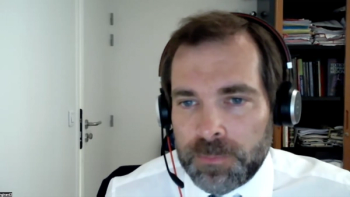
The subcutaneous dose had comparable efficacy to intravenous dosing while enhancing patient convenience in non–small cell lung cancer, explains Nicolas Girard, MD, PhD.
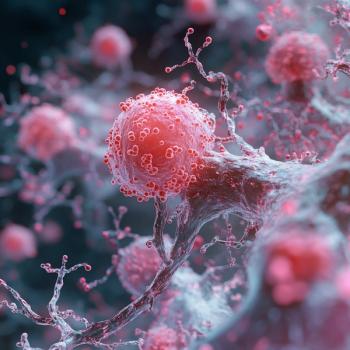
Updated results from the MARIPOSA trial show that amivantamab plus lazertinib significantly reduces EGFR- and MET-driven resistance compared with osimertinib.

Byoung Chul Cho, MD, PhD, of the Yonsei University College of Medicine, discussed outcomes in the COCOON trial of an enhanced dermatologic regimen with amivantamab-lazertinib treatment.
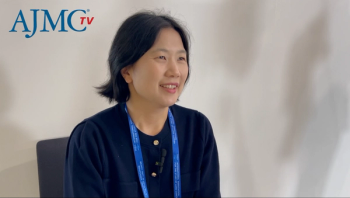
Subcutaneous amivantamab plus chemotherapy offers an equally effective treatment for EGFR exon 20 insertion non–small cell lung cancer (NSCLC), mirroring PAPILLON results of the intravenous formulation, explained Sun Lim Min, MD, PhD.

Monthly SC amivantamab plus daily lazertinib demonstrated strong efficacy and tolerability in EGFR-mutated advanced NSCLC, providing a convenient alternative to IV dosing.
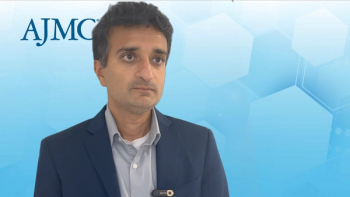
Disparities in lung cancer biomarker testing show barriers that delay diagnosis and treatment for lower-income patients, according to Sandip P. Patel, MD.
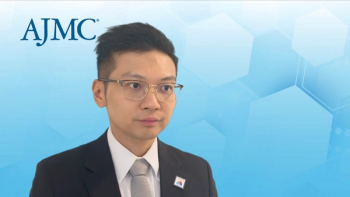
Personalized testing is preferred for patients with NSCLC with mutations, but there are challenges to implementing this testing, said Yang Xia, MD, PhD.
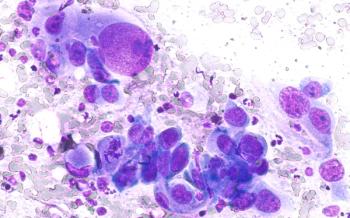
Central nervous system (CNS) metastases in EGFR-mutant non–small cell lung cancer (NSCLC) remain a major challenge, with emerging therapies and evolving trial designs aiming to improve outcomes and address unmet needs.
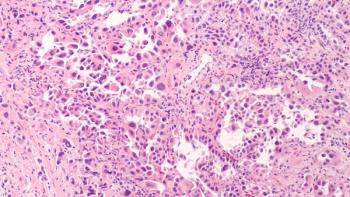
Uncommon EGFR mutations in non–small cell lung cancer (NSCLC) remain challenging to treat, but new tyrosine kinase inhibitors, bispecific antibodies, and a proposed “PACCage insert” framework provide opportunities to advance precision therapy.
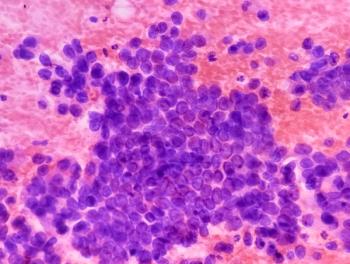
Treatment of EGFR-mutated non–small cell lung cancer (NSCLC) is shifting toward next-generation sequencing and combination regimens that improve survival but increase toxicity, requiring individualized care.
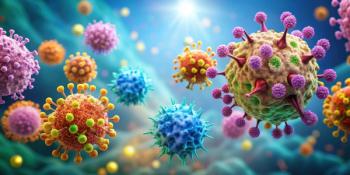
Antibody-drug conjugates are rapidly reshaping the treatment landscape of non–small cell lung cancer (NSCLC), with advances in design, clinical efficacy, and regulatory approvals tempered by ongoing challenges in toxicity, resistance, and biomarker optimization.

Bispecific antibodies are emerging as a transformative class in advanced non–small cell lung cancer (NSCLC), with agents such as amivantamab and zenocutuzumab already demonstrating clinical benefit and a broad pipeline of investigational therapies showing promise in overcoming resistance.
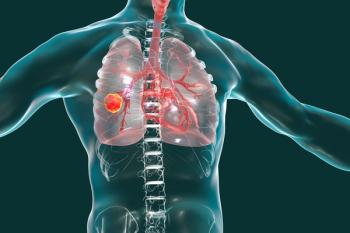
National Comprehensive Cancer Network (NCCN), the European Society for Medical Oncology (ESMO), and the American College of Chest Physicians (CHEST) offer complementary yet distinct frameworks for lung cancer care, reflecting differences in evidence evaluation, regional adaptation, and policy integration.
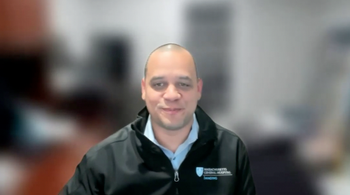
Efren Flores, MD, of Harvard Medical School and Massachusetts General Hospital, discussed the findings of a subanalysis of the Screen ASSIST tobacco cessation clinical trial.
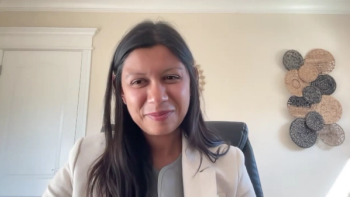
Surbhi Singhal, MD, of the University of California Davis, discussed disparities in biomarker testing among patients diagnosed with stage IV nonsquamous non–small cell lung cancer (NSCLC).
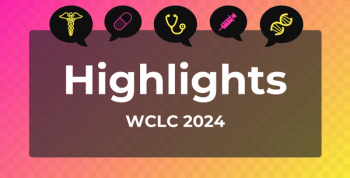
The 2024 World Conference on Lung Cancer (WCLC) took place in San Diego, California, from September 7 to 10, 2024.

More than 80% of patients with lung cancer receive care in their communities, but this can leave them vulnerable to gaps in care quality and delivery.
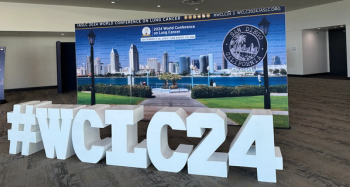
The toxicity of lung cancer treatment has traditionally been discussed in terms of physical symptoms, but there is a growing focus on financial toxicity, time toxicity, and other effects on well-being, as reflected in research presented at the 2024 World Conference on Lung Cancer.
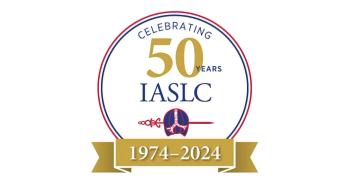
Chairs and presenters from the 2024 World Conference on Lung Cancer comment on their favorite parts about attending this meeting each year.
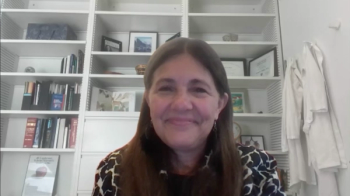
Heather Wakelee, MD, Stanford University, discusses the pros and cons of different durations of immunotherapy in non-small cell lung cancer (NSCLC) and the future outlook for patient-specific care.

Matthew Smeltzer, PhD, University of Memphis, shares insights into his team's quality-of-care initiative to identify and combat gaps in care for patients with early-stage non–small cell lung cancer (NSCLC).
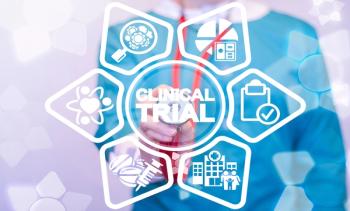
Speakers at the 2024 World Conference on Lung Cancer discussed the considerations that must go into designing and performing clinical trials in the early-stage lung cancer space, ranging from selecting an end point to empowering participants.
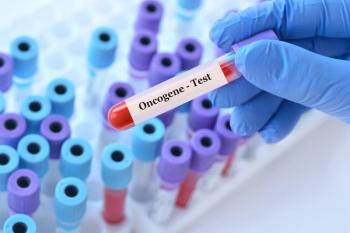
Biomarker testing is critical for determining optimal therapy early in the non–small lung cancer (NSCLC) treatment process, but research shows uneven insurance coverage of these tests and inconsistent uptake in cancer centers.

Bellinda King-Kallimanis, PhD, LUNGevity Foundation, reflects on her experiences in patient-focused research to discuss the current state of patient education, the importance of patient advocates, and mediating barriers to health care access.

Lung cancer is tied to tobacco smoking in the public consciousness, but a significant proportion of cases are driven by factors like indoor and outdoor air pollution or ancestral genetic variants.
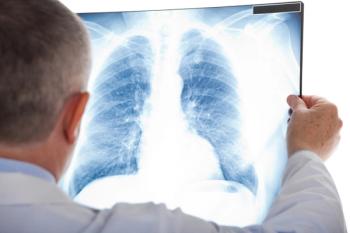
John Heymach, MD, PhD, The University of Texas MD Anderson Cancer Center, discusses exciting developments in HER2-targeted therapies that he foresees making a difference in the treatment of non–small cell lung cancer (NSCLC).
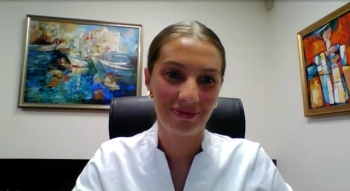
Ana Baramidze, MD, PhD, Todua Clinic, Tbilisi, Georgia, details exciting findings from the EMPOWER-Lung 1 trial regarding cemiplimab and patients with non–small cell lung cancer (NSCLC).

Data presented in the second Presidential Symposium at the 2024 World Conference on Lung Cancer showed encouraging responses to novel agents among patients with HER2-mutated non–small cell lung cancer (NSCLC).
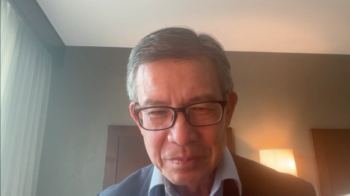
Siow Ming Lee, PhD, FRCP, University College London Hospitals, discusses essential advancements necessary for improving immunotherapy outcomes in special patient subgroups with lung cancer.

259 Prospect Plains Rd, Bldg H
Cranbury, NJ 08512
© 2025 MJH Life Sciences®
All rights reserved.
